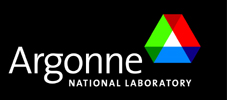 |
Chemical Sciences & Engineering |  |
Institute for Atom-Efficient Chemical Transformations (IACT) Energy Frontier Research Center
IACT's Goal The Institute for Atom-Efficient Chemical Transformations (IACT) will use a multidisciplinary approach to address key catalytic conversions that could improve the efficiency of producing fuels from coal and biomass. IACT will focus on advancing the science of catalysis for the efficient conversion of energy resources into usable forms. IACT’s goal is to find ways to achieve control and efficiency of chemical conversions comparable to those in nature. Achieving this goal will require new catalytic materials. A major emphasis of IACT is to synthesize new, complex, multisite, multifunctional catalytic materials that offer new models for catalysis. Using advanced computation and modeling to interpret, understand, and optimize experimental results is also a critical part of advancing catalytic science. Research Areas IACT’s research can be divided into four tasks:
Using these approaches, IACT will address key chemistries associated with:
Partner Facilities IACT will make use of the Advanced Photon Source at Argonne National Laboratory and several Office of Science computational facilities (Argonne’s Center for Nanoscale Materials Virtual Fabrication Lab, the Argonne Leadership Computing Facility, the National Energy Research Scientific Computing Center at Lawrence Berkeley National Laboratory, and the Institute for Interfacial Catalysis at Pacific Northwest National Laboratory). EFRCs at Argonne IACT is one of two Energy Frontier Research Centers (EFRCs) at Argonne. The other, the Center for Electrical Energy Storage, will investigate electrical-energy storage technologies for alternative renewable energy sources, transportation, medicine, defense, aerospace, telecommunications and consumer applications. Argonne will also will play a prominent role in 10 other EFRCs. Funding and Members The Center will receive $19 million over five years. Argonne is the lead organization, with Argonne chemist Christopher Marshall as principal investigator and IACT director. In addition to Argonne, the Institute's other members include Northwestern University, Purdue University, and the University of Wisconsin. More
February 2012 |
|
||||||||||||
| U.S. Department of Energy Office of Science | UChicago Argonne LLC |
| Privacy & Security Notice | Contact Us | Site Map | Search |
